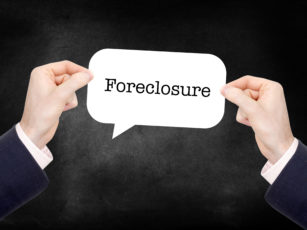Whether a homeowner wants to do a short sale or even a foreclosure, there are a lot of differences that most are going to want to know about before deciding on one. While it may seem easy to just walk away and let the bank take the home, this may not be the best choice. To help understand the differences, let’s take a look at what the differences are and how it can affect things later on down the road.
What is a short sale?
With a short sale, the bank will agree upon a price tag that the homeowner can sell the home for. This price tag will likely be less than what the mortgage is for. Once the home is sold for this amount, the bank will call it even and the homeowner can walk away without having to owe any debts.
Using this scenario, let’s say that the home is only worth $100,000, but the mortgage note is for $150,000. The bank may tell the homeowner that they can sell the home for $100,000 and the $50,000 difference will be waived, allowing the homeowner to walk away free and clear.
What is a foreclosure?
A foreclosure is a lot different than a short sale since the homeowner will allow the bank to take ownership of the house. After a certain amount of payments have been missed, the lender will force the homeowner from the home, taking over the deed. Once the redemption period is over, the bank can then turn around and sell the home on the market. If the bank doesn’t successfully receive the amount owed on the balance of the mortgage, they can come after the homeowner to claim a deficiency judgment. While a deficiency judgment can expire over time, each state has its own laws and time periods.
Get Started With a Free Debt Analysis
We make it easy on mobile or desktop. FREE with no obligations.
Affects on the Credit Report
Since most homeowners are going to need a place to stay after this type of situation; most people often wonder how it will affect a credit score. With a short sale, the average credit score can drop 50 to 150 points. On the report, it will often state things such as “paid in full for less than agreed amount” or something such as “settled for less.”
With a foreclosure on the other hand, a credit score can drop as much as 200 points, and this will remain on the credit report for more than seven years, making it hard to get a new loan or even a new job if a company checks the credit report.
Each situation will have different affects on a credit score, different deficiencies and even tax repercussions. While it’s best to note that a short sale is always the way to go, sometimes the bank just may not agree upon a price to successfully sell. If planning to go the short sale route, always make sure that a qualified expert is hired so that there’s a better chance at closing the deal.
Advantage Credit Counseling Service offers a variety of housing counseling services. Let us help you with: Foreclosure Prevention Counseling, Pre-Purchase Counseling, and Reverse Mortgage Counseling. To set up an appointment with a certified housing counselor at AdvantageCCS, call (888) 511-2227. We are here to help!
